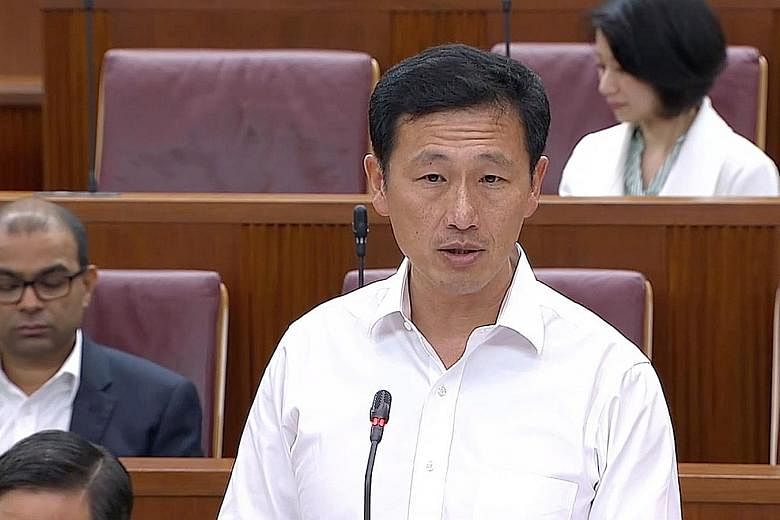The real concern among some academics over the fake news law is the potential impact on political discourse in Singapore, said Education Minister Ong Ye Kung, as he explained why it is impossible for academic research to run afoul of the proposed legislation.
Speaking at the debate on the Protection from Online Falsehoods and Manipulation Bill (Pofma) in Parliament yesterday, Mr Ong assured the House that the Government will not apply the laws to academic research.
He was responding to a letter he received last month from 124 academics, of whom slightly more than half were foreigners, which raised concerns that the Bill could lead to self-censorship.
The minister said the Government will stay true to science and empirical evidence, and engage in vigorous public debate over opinion-based research. "Under both scenarios, Pofma does not apply in such a discourse," he said.
The only way the law would be invoked is if the research is based on false observations or data, preventing public discourse from taking place properly. "In which case, such work cannot pass the professional standards of any decent university or research institute," he said.
But Mr Ong pointed out the real concern of academics is that the law will be used to stifle political discourse in Singapore, noting that "not all researchers are just researchers, they may also be activists".
While emphasising that research cannot be conflated with activism, Mr Ong said no activist will be caught by the law if he criticises the Government.
"The law treats all activists equally - whether you are an academic or a man or woman on the street," he said. "It does not target academics. You are as free as an ordinary citizen to comment on current affairs and critique the Government."
Conversely, any academic - activist or not - who uses online platforms to spread falsehoods that harm society will not be spared under the law, he added.
He noted that public discourse is becoming more rigorous, and it is in this area where the views of academics would be regarded differently. They could say, for example, that Singapore's growth model or meritocratic system has failed, and the laws will not apply because these are opinions.
"But in the interest of open debate and given your stature in society and position in a publicly-funded university, please expect government agencies - if we do not agree with you - to present the facts, our arguments and to convince the public otherwise."
"If that has a chilling effect, please chill," he added to laughter from the House.
He added that the same or even higher expectations apply to him and his Cabinet colleagues, and whenever one of them puts out a view in public, those who disagree with them will speak up and the ministers would have to re-evaluate their position.
He cited some events that shape a nation, like the Holocaust in Germany and communist threats Singapore faced after independence. Researchers may continue to interpret these events, but they cannot deny they happened, he said.
"Only by holding onto certain truths are we able to continue to collectively identify the issues that are important to us... and decide the way forward, without the lies and manipulations," said the minister, whose speech ended in applause from the House.
SEE OPINION



